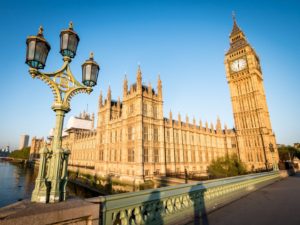Two-thirds of UK public has no plans to shake off bad lockdown habits

Britain is set to emerge unhealthier from lockdown, with four out of five people (81%) reporting an increase in harmful habits, including smoking, poor diet and staying up late. Yet only a third (31%) of those surveyed plan to shake off their new habits after lockdown, according to a YouGov survey, by self-care app and websiteYour.MD.
According to leading behavioural economist, Denise Hampson, the sudden disruption to our old way of life has shaken our routines and habits, with the ambiguity of life in lockdown leading us to replace them with new ones that we find comforting.
The survey found that detrimental habits have emerged during the course of lockdown. A combination of the habits identified will, over time, lead to long-term implications for individual health, earning lockdown another place in the list of risks to our health.
Almost a fifth (17%) of people claim to have started drinking more than 14 units of alcohol a week (approx. two bottles of wine) during lockdown, and 9% have taken up smoking. This is more common in 35-44-year-olds (20% and 13% respectively).
A third (33%) of the public say their eating habits are less healthy now than before lockdown began, with full-time students and 18-24-year-olds at the forefront of the trend (47% and 49% respectively).
In spite of a rise in online fitness classes and government encouragement to get outside to exercise, 30% said they had become less active during lockdown. This peaks in London, where 39% are exercising less than before lockdown began. Across Great Britain, ONS data which looked at ‘Coronavirus and the Impacts on Great Britain’ reveals that 42% of people are unable to exercise as normal, due to the implications of the virus.
Poor sleep is also impacting people, with just under one third (29%) saying they’re not sleeping as well during lockdown, and over two thirds (67%) are not making extra efforts to get a better night’s sleep. This rate is higher among men (73%). Nearly half of the population (40%) are waking up later and a third (34%) staying up later at night.
Denise Hampson explains, “Now that our normal lives are suspended, so are the cues we used to be exposed to and so our habits will have changed too. We will have replaced them with new ones based around the routine of our lockdown lives.
“We are also facing an extreme period of collective anxiety. Nothing we used to do can be taken for granted anymore and we are less clear on what the future holds. This leads to soothing behaviour, to make us feel better, so it’s no surprise we are drinking more alcohol, consuming more social media, smoking and snacking unhealthily.”
The public do seem, however, to be prioritising mental wellbeing the most. Almost half the nation (45%) have been taking extra steps to look after their mental health during lockdown – from seeking WhatsApp group advice (14%) to following YouTube videos (8%) and using smartphone apps (10%). When it comes to managing their mental health, 18-24-year-olds unexpectedly prefer to write in diaries (17%) more than use smartphone apps (12%).
Full-time students have come out on top in terms of looking after their mental health and wellbeing (63%), with retired people coming in last, at 36%. This correlates with the latest ONS data which reveals that 65% of people feel more stressed and anxious and 27% say it is making their mental health worse.
Denise explains that there will be difficulties faced in adapting to post-lockdown life and our perception of this may be underestimated. “What’s most interesting is how aware we seem to be of our wellbeing during lockdown and the impact it has had on our behaviour.




